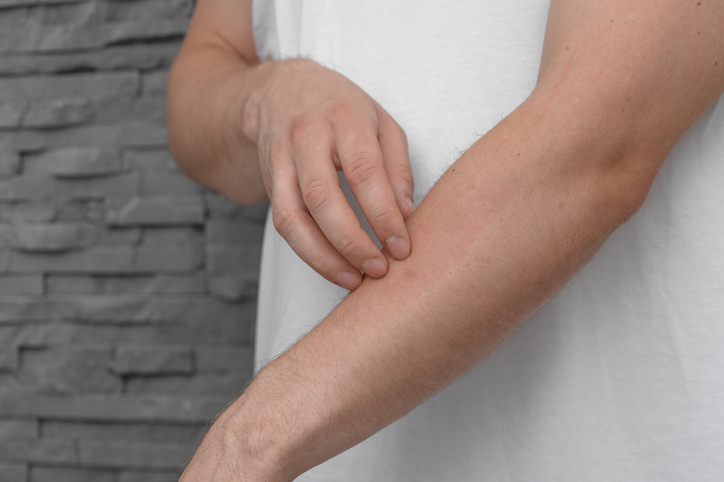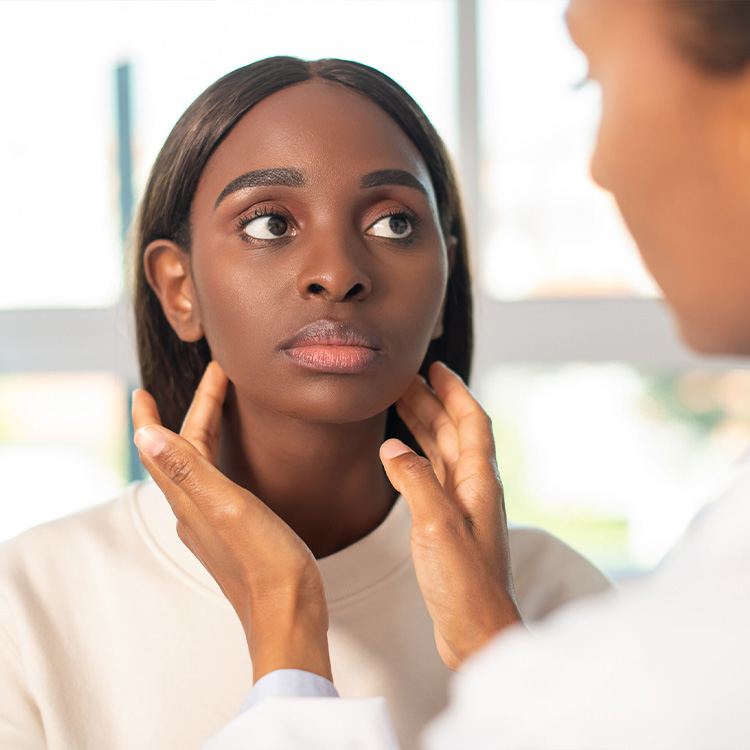AllCare is pleased to announce the opening of its newest location in Braselton, expanding access to high-quality, patient-centered healthcare for...
Minor Skin Infections Treatment
Quick Skin Infection Treatment
At AllCare Primary & Immediate Care, we understand the importance of healthy skin as it is our body’s first line of defense against germs and infections. When the skin is compromised, it becomes vulnerable to bacteria that can cause pain, swelling, and other complications. Our dedicated team is committed to providing thorough evaluation and effective treatment for minor skin infections.

Do I Have Rash or Skin Infection?
While a skin rash may be a symptom of a skin infection, not everyone who has a rash has a skin infection. Rashes are often red, itchy, or irritated patches of skin, while skin infections may have signs of pus or fluid leaking from a wound, pain, swelling, or skin discoloration. While many skin infections are minor, the AllCare team can help diagnose the severity of your symptoms and offer a treatment plan that’s right for you.
Our Skin Infection Treatment Services in Georgia

Common Skin Infections We Treat
At AllCare Primary & Immediate Care, we treat a wide range of skin infections to ensure your health and well-being. Our experienced team is equipped to diagnose and manage various conditions, including:
- Cellulitis
- Ringworm (tinea corporis)
- Athlete’s foot (tinea pedis)
- Jock itch (tinea cruris)
- Acne
- Poison Ivy (contact dermatitis)
- Abscesses
- Folliculitis
- Tick Bites
- Bug Bites
- Shingles
Online Doctor Visits and Telehealth Services
Experience the convenience of telehealth appointments at AllCare Primary & Immediate Care. Our telemedicine services are designed to provide you with seamless access to healthcare without the need to leave your home. Whether you need an online doctor’s appointment for immediate or primary care, AllCare’s got you covered. With our online telehealth services currently available to individuals located in Georgia, you can connect with our experienced urgent and primary care physicians via secure video calls.
At AllCare Primary & Immediate Care, we are expanding our virtual healthcare access to all services previously offered in person. This includes:


What Does a Skin Infection Look Like?
A skin infection can present with various symptoms, depending on the type and severity of the lesion or wound. Early diagnosis and treatment can prevent the infection from spreading and becoming serious. Here are some common signs and symptoms to look out for:
- The affected area often becomes red, swollen, tender, hot, or painful
- You might see pus or other fluid leaking from the wound or infected area
- Infections can cause blisters or open sores on the skin
- Infected areas can become itchy which can increase bacteria if scratched
- Presence of fevers, chills, or sweats
How to Get Treatment for Your Skin Infection
You can easily get a consultation for your skin infection by scheduling your appointment at AllCare Primary & Immediate Care or by simply walking into one of our clinics. Follow these simple steps:
- Schedule Your Consultation: Contact AllCare Primary & Immediate Care or schedule an appointment online with one of our experienced doctors to discuss your skin symptoms and concerns.
- Share Your Medical History: Provide relevant medical information during your consultation to help our doctors better understand your condition, when you noticed the infection start, lifestyle, and overall health.
- Personalized Skin Infection Treatment: During your consultation, we will evaluate your symptoms and develop a customized treatment plan tailored to your individual needs. Treatment options may include medications -such as antibiotics, antifungals, antihistamines- and a dermatologist referral in severe cases.

Frequently Asked Questions
What causes skin infections?
Skin infections are caused by a variety of microorganisms, including viruses, bacteria, fungi, and parasites. Each type of microorganism can enter the skin through different means, such as cuts, scrapes, bug bites, piercings, tattoos, or wounds. The symptoms and treatment will depend on the specific cause of the infection. Bacterial infections like cellulitis and impetigo are treated with antibiotics, while fungal infections like athlete’s foot and ringworm require antifungal medications. Viral infections, such as shingles, are managed with antiviral drugs, and parasitic infections, like scabies, are treated with antiparasitic medications.
What are the types of skin infections?
There are multiple forms of skin infection and understanding the different types can ensure you receive early intervention. The most common types of skin infections include:
- Bacterial Infections: Common bacterial infections include impetigo, cellulitis, abscesses, and folliculitis. These infections often present with redness, swelling, pain, and pus-filled lesions.
- Fungal Infections: These include ringworm (tinea corporis), athlete’s foot (tinea pedis), and jock itch (tinea cruris). Fungal infections typically cause itchy, red, and scaly rashes.
- Viral Infections: Examples include shingles and herpes simplex. These infections can cause painful rashes and blisters.
- Parasitic Infections: Scabies and lice infestations are common parasitic skin infections, causing intense itching and rash.
Who is most likely to get a skin infection?
Certain individuals are at higher risk for skin infections due to existing diseases and chronic illnesses. Conditions like diabetes, poor circulation, obesity, and a weakened immune system increase susceptibility to infections. Individuals with immunocompromised diseases such as HIV or those undergoing chemotherapy are also at higher risk.
Additionally, very young children and elderly individuals, as well as those with chronic skin conditions like eczema, are more prone to developing skin infections. Factors like poor hygiene, frequent skin injuries, and living in close quarters with others can also contribute to a higher risk.
How can I prevent skin infections?
Good personal hygiene is the first step to preventing skin infections. Washing your hands with soap and water regularly can help prevent the spread of bacteria. Keep your skin clean and dry, and don’t scratch the affected areas, which could worsen the infection. For fungal infections, avoid walking barefoot in public, and choose socks and shoes made of breathable fabric.
schedule your minor skin infection treatment appointment
The Latest Healthcare News
Check out our blog to learn more from our team about the latest medical advancements, health tips, and primary care news.
Lauren Schwartz, F.N.P.-C. of AllCare Appeared on “The Weekly Check-Up” Radio Show
Lauren Schwartz, F.N.P.-C. of AllCare Primary & Immediate Care appeared as a featured guest on “The Weekly Check-Up” on December 21, 2025. The...
AllCare’s Dr. Racheal Daniels Discusses Holiday Health and Primary Care on WSB-TV’s “Daily 2”
Dr. Racheal Daniels of AllCare Primary & Immediate Care recently appeared on WSB-TV’s Daily 2 to discuss the importance of prioritizing primary...
Related Services
Our related healthcare services extend beyond immediate care to include preventive care such as routine physical exams, chronic disease management for conditions like diabetes, and specialty care referrals for more complex health issues.









